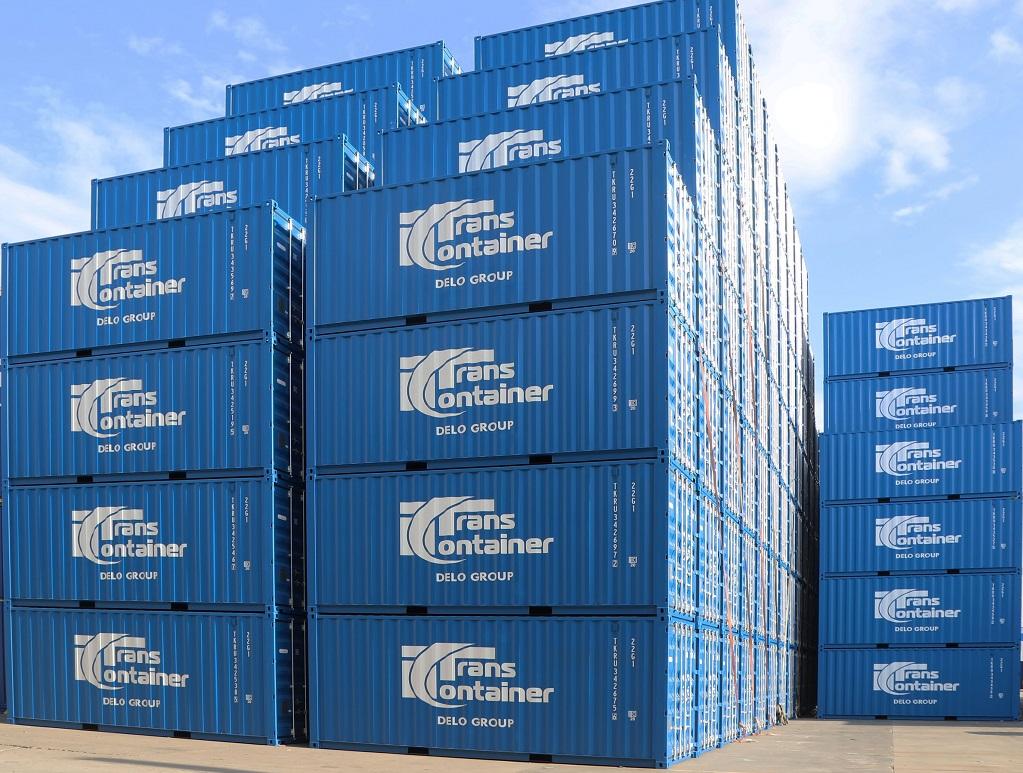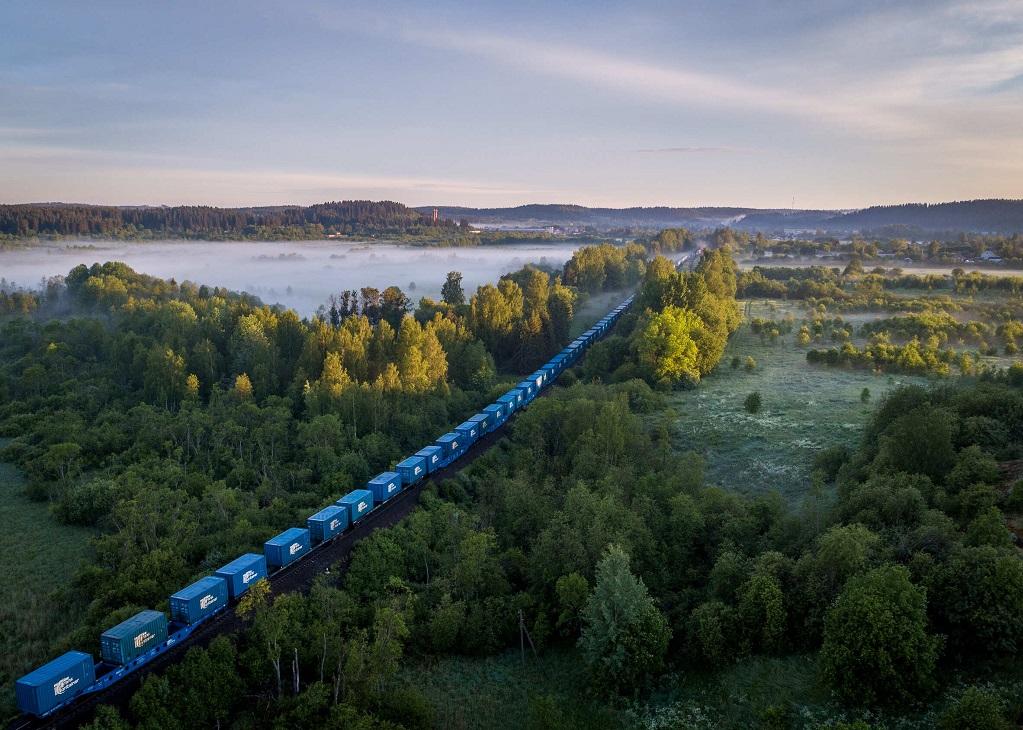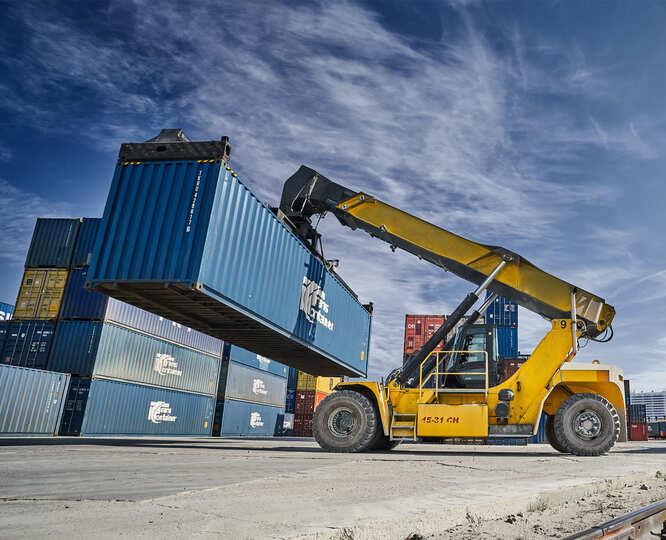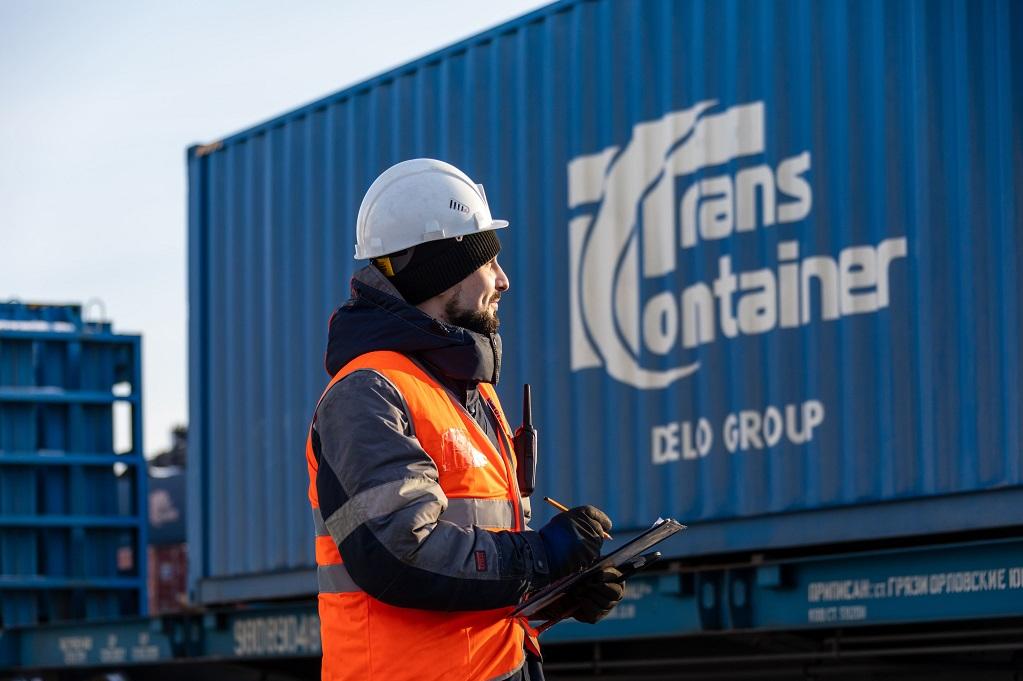Press Releases
“We are no longer a state company.” President of TransСontainer Alexander Isurin
The Company’s Board of Directors was re-elected on the annual meeting of PJSC TransContainer shareholders on the 14th of May. Delo Group acquired the Company in November 2019. The President of TransContainer Alexander Isurin who entered the Board told Kommersant about container transportation under conditions of anti-epidemic restrictions, forecasts for this year, as well as the necessity to subsidize the rail transportation vs. the maritime.
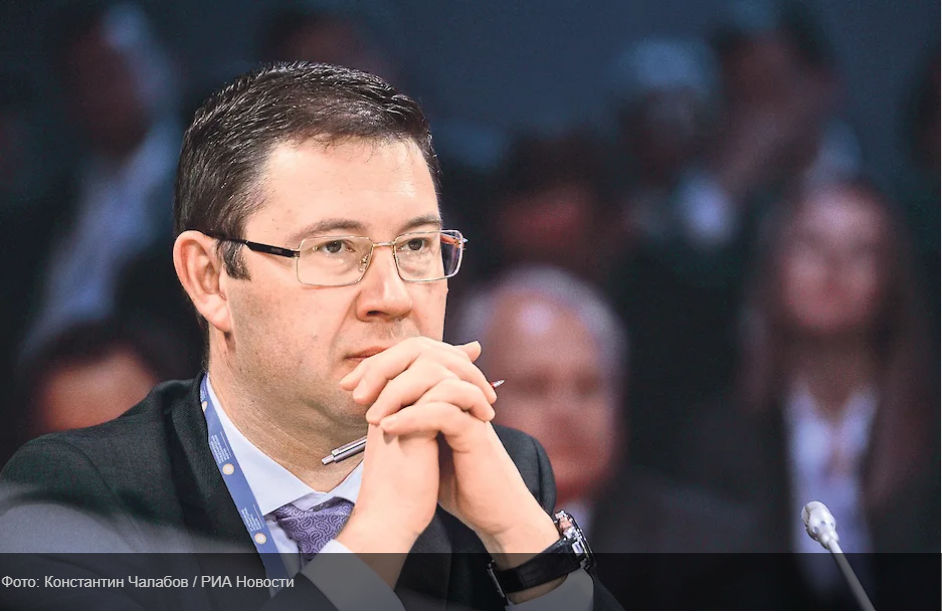
You have been working at the Company for more than two months, but in mid-May you were reassigned, why? How different is this work here from what you did at FESCO?
I have been working at the Company as the President since the 10th of March. In order for the President to become the sole executive body, the Company’s charter had to be altered, it takes time. After the new charter was adopted, the Board of Directors confirmed my authority as the President of the Company. But nothing has changed in my responsibilities since the 10th of March to the present day.
As for the comparison of my functions in TransСontainer and in FESCO, the business of TransContainer is door-to-door rail transportation of containerized cargo, the business of FESCO includes other areas: transportation and transshipment of non-containerized cargo, sea freight. The business of TransContainer is bigger, but more unvaried. Therefore, it is definitely impossible to say that this is a new sphere for me - it is understandable and familiar to me. But TransContainer requires other management principles due to its scale.
Does the workflow itself similar?
Short answer - yes. The market is familiar to me, as well as the clients and contractors. I would even say that I know a good half of people of TransContainer’s top managers from 5 to 20 years. We have met many times, as the container market is quite narrow. It happened that we even worked at the same company, competed with someone, and besides, I have known TransContainer quite well when FESCO was TransContainer shareholder.
Under the conditions of the pandemic, only a few industries faced a revival, and one of them apparently is the container transportation. In the first quarter of 2020, TransContainer increased its rail transportation volume by more than 6%. How long do you think this growth will last, what are the reasons for it?
Pallid statistics: loading on the Russian Railways network over the four months of this year declined by 4.3%. And the container market of the railway transportation increased by 12.6%: domestic - by 13.2%, export - by 13.6%, import - by 9.8%, transit - by 13.5%.
General figures show that the container market is rather in a good shape, but the growth over the first four months was very unstable.
The import dropped massively in February, there was no dynamics. And this affected by the lack of containers in Russia for the export loading when on the contrary the export showed a very strong positive dynamic. Consequently, despite the overall market growth, the internal imbalance increased greatly that influences the costs for the necessary equipment dispatch to the loading points.
The increase of transit was also uneven: at first, it decreased at the beginning of the year due to the closure of the Chinese enterprises for quarantine. Then there was an increase since the enterprises were opened in February and began to catch up. After that, a new decrease wave occurred – the European enterprises were closed, followed by a new uplift.
And this increase is very interesting. Almost all airlines have canceled previously scheduled flights, especially to China, due to the quarantine restrictions. A very large number of e-commerce products used to be transported in the luggage compartments of the regular passenger air transportation. This capacity cannot be replaced by cargo airlines, and the next best mode of transport that allows us to provide an acceptable delivery speed is only railway container transportation. And we see that the transit in April 2020 compared to April 2019 increased by 32%. The fastest route is via Kazakhstan, that is why the colleagues from UTLC ERA (operating in this region - “Kommersant”) showed a record transportation volume in April.
So, the main growth driver under restrictions was the termination of the airline flights, and not for example the quarantine measures that complicate the work of automobile transportation?
We are talking about transit in April and the impact of e-commerce on it. As for the cross-border trade, we did not see a serious cargo outflow from the trucks to the railway. There is probably some small percentage, but we do not see a significant overflow. The restrictions on automobile transportation strongly influenced the volume of cargo as follows. In China there were not enough drivers to drive containers for the export or to pick up the import due to the quarantine. Our colleagues in the industry or ourselves drove the container to the port or terminal station, but it was not possible to take it out of this terminal. Honestly, we also did not notice a significant cargo overflow from trucks to the railway in the domestic transportation. Even the quarantine restrictions imposed by Rospotrebnadzor did not significantly apply to the automobile transportation. Some things surely became more complicated, but I do not think that this is a crucial factor.
The exchange rate is another factor that strongly affect import and export. Do not forget that the ruble has devalued, and this cannot but affect the import in the long run. We expect a slowdown of the import growth in the future. Firstly, due to the exchange rate and secondly, real disposable incomes of the citizens are dropping, the investment potential has decreased, and 1.5 months of standby cannot pass without a trace. The Ministry of Economy predicts a drop in GDP, oil is cheap - all the prerequisites for the import further decline. Export as usually happens in such situations will increase - if there are no additional restrictions from the countries to import our production.
I am not going to do a useless thing and make forecasts, because I do not know what the world will look like after the pandemic. However, we agree with the executives of various enterprises - not only in transport, but also in banking, telecommunications, manufacturing, and trade - that we need to change management philosophy and quickly respond to new challenges and new restrictions. and the opposite – we should take advantage of the new opportunities.
What exactly do you mean?
The Company should make fast decision within two or three days if a new restriction is imposed or new opportunities appear. The most vivid example, which is most widely discussed now, is the launch of a new COVID-19 vaccine after it is invented. Before the pandemic, the deadline for launching it was ten years. Now, we need from six to nine months from when vaccine is requested till it is released. If six months ago someone would have said that a medicine could be launched in such a short time, people would have decided that he was crazy.
But there are figures that I am ready to share: we expect the growth of the Russian market railway container transportation to reach 6% in 2020. We cautiously glance into the future.
Will the results of TransСontainer deviate from the general trend?
I hope that they will deviate for the better. I will not give specific numbers, but if we expect 6% for the market, then our own ambition is double-digit.
How do you expect to achieve this rate?
Two things. The first is the service. We are changing our attitude: we have become a private service company; we are no longer a state company. It would seem both are service companies.
But some things that were taken for granted, some contracts that we received from the State, were gone, and now we are on an equal term with other market players.
This gives more freedom in decision-making, our focus on service is increasing, we launched two projects to improve the quality of services and we hope that our clients will see the result in the nearest future.
It still sounds like a slogan: Russian Railways also says that it is developing the client focus, and there is no such company that would say otherwise. Nevertheless, we would like to understand what is the difference between TransContainer under the Russian Railways and TransContainer in autonomous freewheeling?
I will give an example. A few years ago, the Korean government turned to the Russian government with a request to help Samsung in solving its transportation and logistics problems. The Government sent it to the International Commission, which delegated this task to the Ministry of Transport, then the Ministry of Transport - to Russian Railways. In turn, Russian Railways delegated the container transportation to TransContainer.
At that time, I was working at a competing organization and I was also negotiating with Samsung at the Eastern Economic Forum. And the Koreans said that they would be happy to work with us too, but the decision was political.
I suppose that such contracts will be primarily executed by subsidiaries of the Russian Railways. And TransContainer will have to fight for them in the open market. Here I want to emphasize that TransContainer had not only state contracts, it has a large customer base. But partially TransContainer may have had more support than some other operator that was not related to the Russian Railways.
Talking about the client focus and service, here is an example: we measured the customer satisfaction index over the past year once - at the end of 2019. Now we will do it monthly, starting from the 1st of June. A set of appeals, customer complaints and suggestions will be discussed every month with the Board of Directors. The second is the development of our IT systems. The first system for our clients - iSales, we consider its development a priority. And the second is our internal system that processes orders, it will be able to provide the clients with online information during the transportation.
And do you expect to achieve double-digit growth in 2020 this way?
I expect that we can increase our market share this way. Now the competition in the field of the railway container transportation has increased considerably. The shortage of rolling stock has disappeared somewhere since the end of 2018, new companies have appeared. If earlier there were two companies in the container transportation market from Moscow to Siberia and the Far East, now there are six or seven of them. So, the price-related competition is impossible in the long run, it affects the financials of the company too much. Therefore, our task is to make us the priority choice of our clients.
Will Russia succeed in fulfilling plans to increase its container transit fourfold, considering the current economic situation?
The consumer purchasing power or GDP dynamics in Russia does not influence transit in any way, because transit cargo are trade relations between countries outside the Russian Federation: China, Japan - on the one side and Europe, America - on the other. Of course, when speaking of the increase in transit over the Russian territory, we have in mind the Asia-Europe direction. In four months of 2020, the transit amounted to almost 200 thousand TEU. If we extend this dynamic over the entire year, we get about 600 thousand. According to the Presidential May orders given in 2018 Russia is supposed to reach 1.7 million TEU transit by 2024 - we have to grow threefold, not fourfold. But this is still quite a lot. Oleg Belozerov (the Head of Russian Railways – “Kommersant”) previously said that he saw the potential for transit that allows to exceed the President’s order.
What factors can influence this? Now we live in the uncertain world: they argue whether there will be a second wave of the pandemic. We saw that Harbin was closed in 24 hours when 70 new infected people appeared there two or three weeks ago. China, therefore, seems to have found a way to fight the spread of the virus. If there is a second wave, it will require an additional closure that may influence the shipment volumes.
The second is the gradual reduction of the Chinese government’s subsidies for transit in the framework of One Belt One Road initiative. It is not certain what the program to reduce subsidies is exactly: we do not have information about the dynamics and timing, but the subsidies are gradually reduced.
On the other hand, this way of transportation has already proved itself, and clients who get used to this service, despite the increase in price, will not automatically switch to another route. If only because in addition to changing the delivery time it is necessary to revise other things - the procurement system, storage stocks and so on. We are in a competitive market and we maintain the quality of transportation, but the price may slightly increase.
How can this affect the competitiveness of rail container transportation compared to maritime?
Now the sea container lines are under a strong pressure and their prices for the routes from China have dropped significantly. The cargo turnover of the Chinese ports decreased by 4.6% in the first quarter, this is a huge volume. China operates about 20 million TEU per month, 4.6% is a few million TEU. That means that there is a free space on vessels and under these conditions the lines offer almost any price not to go completely empty. They are strongly competing on price. On the one hand, the economic perspectives are not promising and on the other hand, our colleagues in the industry and ourselves are developing new directions, thereby offering more interesting or more efficient solutions to our clients.
So, we believe that the Russian transport community is able to attract up to 10% of Korean and Japanese traffic via the Russian Railways network. This is 500 thousand TEU.
We will additionally attract clients from China, there will a kind of natural increase. And if we obtain these 500 thousand TEU from Korea and Japan, then I think we will be able to carry out a fourfold increase in transit.
What will help us attract Japanese and Korean transit and further increase the Chinese one? It is a proposal for subsidizing railway transit that we submitted to the Ministry of Transport. The Ministry and Russian Railways supported it, and the Russian President approved this initiative at the meeting on the support of the transport industry. We are waiting for a protocol with specific instructions in order to understand the implementation mechanism. And we are very pleased that the President, the Government, the Prime Minister, and the Russian Railways approved our initiative, which Sergey Shishkarev announced at this meeting (the President of Delo Group, who owns TransContainer. – “Kommersant”).
Those figures that he indicated - are they necessary to attract these 10% of the turnover or for the survival of the industry in the current economic situation?
These figures are tied to the specific values. The difference between the sea route and the Trans-Siberian Railway is $2–2.5 thousand per forty-foot container. According to numerous customer surveys where I participated and based on my personal communications, the difference is quite substantial for cargo flow attraction. According to the expert assessment lead by the major Korean and Japanese shippers, they are ready to accept a price increase of $1,000 depending on the route. Consequently, the $900-1000 per forty-foot container announced at the meeting is a real figure, which is based on the expert estimations. And if there is such a subsidy, it will allow us to develop transit at an accelerated rate.
What else is needed to achieve these transit indicators?
A very important thing is the infrastructure development. The Russian Railways has a program for the infrastructure development, the expansion of transit throughput at the Vostochniy Polygon and on the approaches to the Far Eastern ports. The expansion of the throughput on the Belarus-Poland border crossing is also very important, it requires close attention.
The difficulty is that, unlike the border crossing in Zabaikalsk, which is located on the Russian territory and we can develop it, Brest is our Belarusian colleagues’ responsibility. The Russian Railways cannot control this territory as Zabaikalsk, the Trans-Siberian Railway, or the approaches to the Far Eastern ports.
Kazakhstan and China face the same situation, the Kazakh colleagues should expand the border crossings. The Dostyk-Alashankou border crossing is very congested, however there is an alternative terminal built at a neighboring station, so there is no serious problem there. If we are talking about the border crossing (Mongolia — China. - “Kommersant”) to Zamyn-Uud, this is also not the territory of the Russian Federation, and again we must rely on our Mongolian colleagues and partners to expand their throughput capacities.
I hope that the intentions of the Belarusian, Kazakh and Mongolian partners will be justified in terms of expanding the infrastructure, because the current level of its development will not allow reaching the target figures: it needs to be expanded quickly and without delay since today.
Do you think that the operational capacity of border crossings is a key element of the transportation chain that needs to be expanded?
No, we are talking about the network throughput. The container cargo in tonnage in the Russian Railways’ general cargo flow has a relatively small share, but it is quite profitable. That is why the Russian Railways may decide to prioritize the passage of the containerized cargo in order to ensure these volumes. But I am confident that the company would not want to give up some cargo in favor of others, so they are implementing a large-scale investment program. As I understand it after the meeting with Vladimir Putin on the support for the transport industry, the investment program does not provide sequestration.
The President said that there is no need to stop investing because as we will handle this situation and we have to think about the future.
But let me try to answer your question in another way. Why do I think the border crossing infrastructure is so important? If necessary, the Russian Railways is be able to let through its network 1.8 million TEU even today. And border terminals cannot handle such a volume now.
Delo Group, after acquisition, announced the plans to strengthen TransContainer’s integration with the Group’s assets, including port terminals. Is there anything happening already in this area?
I will answer briefly: yes. I can give two examples. Vostochnaya Stevedoring Company (VSC) is our base port in the Far East, via which we offer our clients the door-to-door transportation solutions and which we include in our supply chains. The second example - in the Black Sea, we launched a regular container train Novorossiysk-Moscow from NUTEP Container Terminal, owned by DeloPorts (part of Delo Group) together with Ruscon and the shipping line Maersk, a partner of Global Ports (part of Delo Group).
Have you started working with cargo of Rosatom?
Rosatom’s transportation needs go far beyond the range of services offered by TransContainer. We offer containerized cargo shipping services. The main logistics operator for Rosatom will be Ruscon, they are already working in this direction. But if it is necessary to transport anything in containers for Rosatom, then surely, we will participate.
Do you expect the tariffs growth rate of the container transportation and the multi-purpose wagons transportation to even up? Did you have any pre-sale agreements with the Russian Railways to prevent that?
Any additional indexation of the container transportation tariff compared to other modes of transport will mean that the growth rate of the railway container traffic is to decrease. There were no pre-sale agreements with the Russian Railways: it fixates rates based on their own considerations.
Here we need to understand that they are not their own enemies. After any additional indexation for railway container transportation, the first competitor to pick up this cargo will not be another type of railway rolling stock. You cannot put the cargo from containers in an open-top wagon. Automobile transport will be the choice in this case.
The increase in the container transportation tariffs would include everyone - not only TransContainer. We have 40% of the market, but this is not the whole market. The Russian Railways could create additional competition for themselves. Therefore, we do expect some annual indexation, but we hope that the container transportation tariffs will not grow at a faster pace.
Moody’s warned us about the possibility of lowering the TransContainer’s rating and suggested that Delo Group would transfer a part of its debt to TransContainer. Are there any such expectations?
Moody’s affirmed our rating with the prospect of a possible review. And we hope that the respected experts of this agency will be objective in their judgments in the future when making decisions. They do not evaluate the entire market. For some reason we, the leader in the growing freight transportation segment, were put in one line with passenger companies that lost up to 75% of passenger flow due to the quarantine restrictions. TransContainer has been, remains and will be a very stable company. We are confident in our stable financial situation taking into consideration the current development program and the updated strategy.
Do you expect the debt to EBITDA ratio to be stable over the year? What approximately will it be?
The debt to EBITDA ratio will be reasonable. According to our assessment of the target indicators, the transport industry has a general ratio of the debt to EBITDA of 3-3.5 as a certain standard. It creates a good balance between the investing equity and the investing borrowed funds (at the end of 2019, the ratio of TransContainer’s net debt / adjusted EBITDA was about 1.5.- “Kommersant”).
Will the TransContainer’s development strategy be revised?
Yes, we will update the strategy for two reasons. Firstly, TransContainer is no longer a fully independent operator - it is part of Delo Group, that is why it is reasonable to develop TransContainer together with the Group. As, for example, with Rosatom: TransContainer will not introduce competencies for the oversized cargo transportation, because there is Ruscon. The second reason is that the market prerequisites have changed completely. We plan to complete the Company’s strategy update for 2020–2025 by the 1st of July.
You mentioned the double-digit growth in transportation volumes for this year. And what about the financial result, what results do you expect?
I can tell you that my expectations and efforts are surely aimed not only at the volume’s growth but also financials. We will wait and see.
Alexander Isurin
Personal file
Was born in 1976. In 2001 he graduated from the Baltic-Russian Institute (Faculty of Economics) majoring in “Enterprise Management”.
He received an additional education - Maersk International Shipping Education with a degree in “Organization and management of water and multimodal transportation”.
Mr. Isurin has been working in the sphere of transport and container transportation since 2005. He started his career with Maersk, then became Head of MSC’s representative office in Russia and Central Asia.
In 2014 he joined FESCO team, the Board of FESCO as Vice-President on Linear Logistics Division and held executive positions in various FESCO structures. In 2016, he joined the Board of Directors of FESCO, held the positions of the Chairman and President of the Company.
In March 2020 Mr. Isurin was appointed President of PJSC TransContainer.
Married, has two children.
PJSC TransContainer
Company profile
The largest railway container operator of the Russian Federation with a 38.8% share in the container transportation market on the Russian Railways network at the end of March. The Company was set up in March 2003. It has 31.6 thousand flatcars and 83 thousand containers. In 2019, the Company transported 2.050 million TEU (by a fleet of containers managed by the Company). IFRS net profit for 2019 increased by 23.6% compared to 2018, to 11.7 billion rubles, revenue - by 12%, to 86.2 billion rubles. In November 2019, a controlling stake in TransContainer - 50% plus 2 shares owned by Russian Railways - was sold to Delo Group of Sergey Shishkarev for 60.3 billion rubles at a public auction. In 2020, Delo Group bought out the major minority shareholders of the operator - Yenisei Capital of Roman Abramovich and Alexander Abramov (owned 25.1% of the shares) and VTB (24.5%) and consolidated 99.64% stake in TransContainer having paid 59.9 billion rubles.
Source – Kommersant dated 26.05.2020
